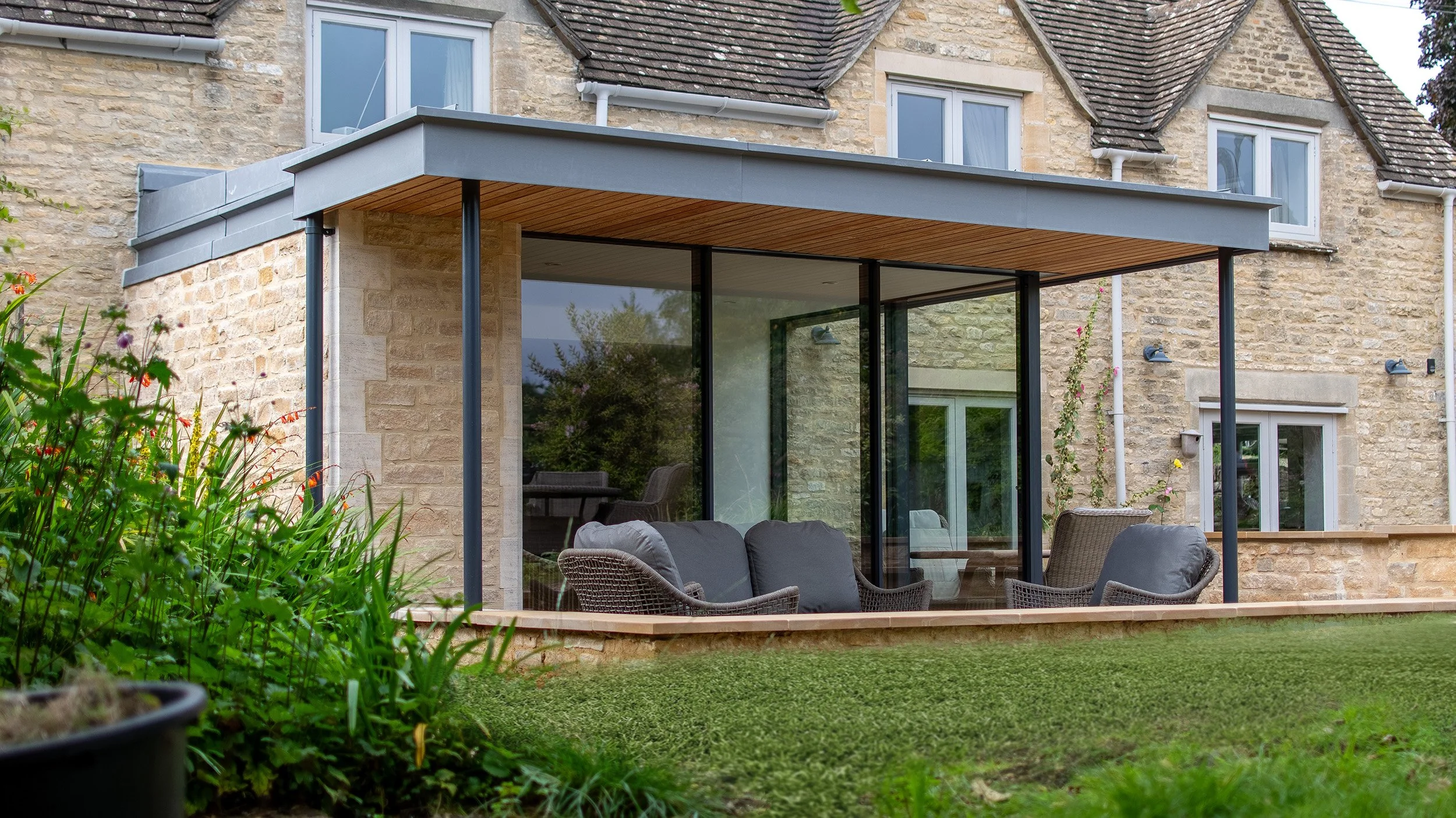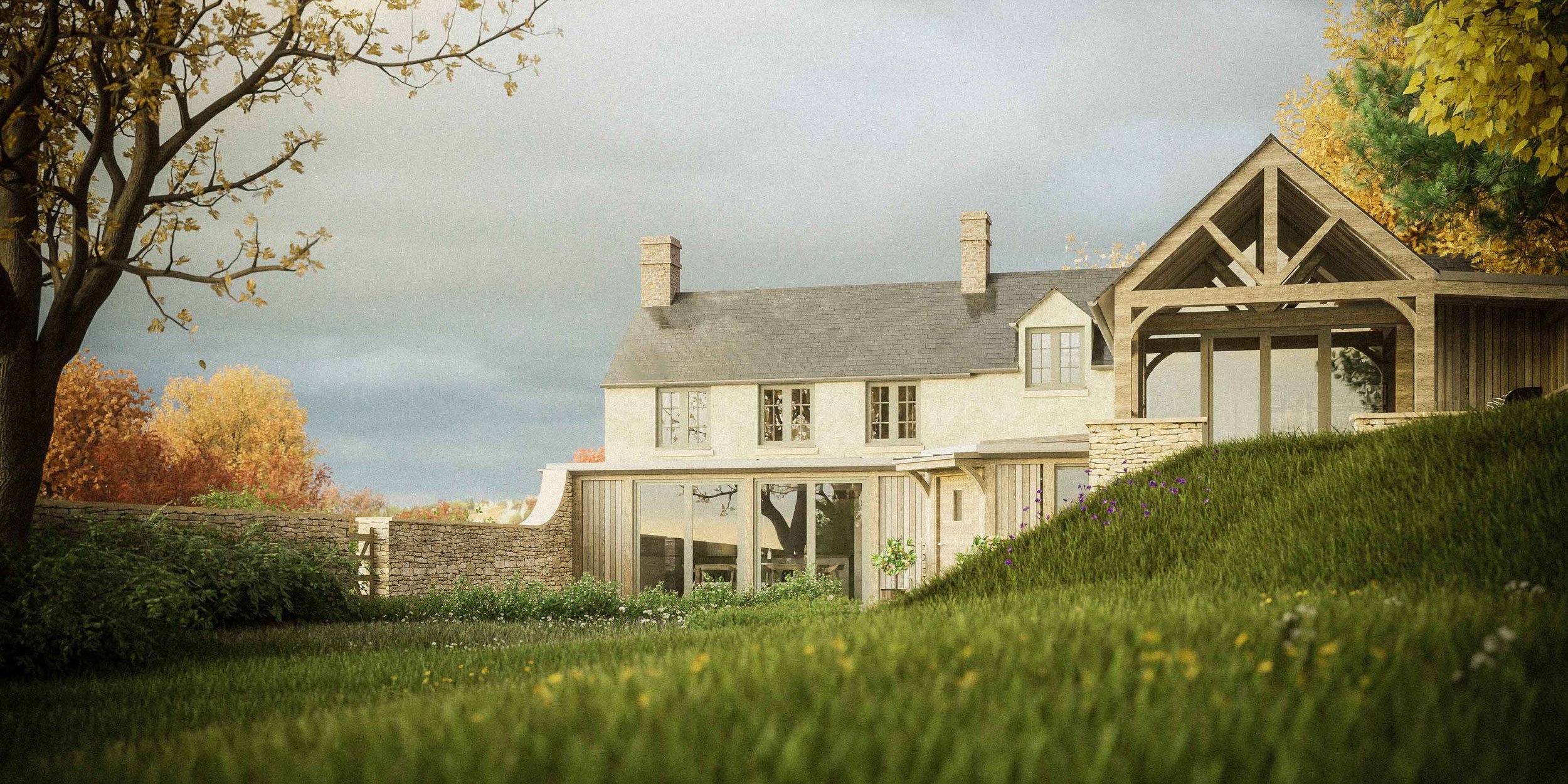Creative Design for Modern Living.
Joshua Hovey Architects is a Somerset-based architectural practice offering a high quality bespoke service.
Our work focuses on residential projects including new-build homes, passivhaus & sustainable design, contemporary extensions, listed building alterations, barn conversions and renovations. Joshua has an excellent track record of achieving planning permission within complex planning constraints such as AONBs, conservation areas and listed buildings.
Thoughtfully Designed Sustainable Homes
We help self-builders looking to design their dream Passivhaus or eco-home, and land owners looking to maximise the potential of their plot. We have a proven track record of securing planning permission within challenging design constraints such as conservation areas, national parks, AONBs and near listed buildings.
Transformative Conversions and Renovations
We are skilled at working with the challenges of existing buildings whether a barn conversion, townhouse or cottage. We know how to rearrange your space to create a beautiful and functional home, even within complex design constraints. Let us help you to make the best use of your existing building.
Sensitively Crafted Listed Building Alterations
Do you have a listed building or period property which lacks natural light, feels disconnected from the outside and has poor flow between living spaces? We are experts at turning period properties into functional homes, customised for modern living.
Simple and Stylish Contemporary Extensions
We design beautiful contemporary extensions. Transform your living space by bringing in natural light, improving the connection with the outdoors and creating harmony between spaces.
Conservation Architects Bath | Joshua Hovey Architects
Key Design Considerations When Planning a Conservation Project in the Bath Area
Adhering to Conservation Guidelines
When planning a conservation project in the Bath area, adhering to local conservation guidelines is essential. Bath, renowned for its Georgian architecture and World Heritage status, requires architects to carefully follow conservation policies to protect its historical and cultural significance. This involves obtaining listed building consent, respecting preservation regulations, and ensuring that any alterations or new additions complement the existing architectural heritage.
Integrating Sensitive Design Solutions
Sensitive design solutions are crucial for conservation projects in Bath. Architects should employ design approaches that respect the original building's character while addressing modern needs. This includes using historically accurate materials, traditional construction methods, and ensuring that new elements blend seamlessly with the existing structure. By integrating these solutions, architects can maintain the integrity of Bath’s architectural heritage while enhancing functionality.
Harmonising with Historical Architecture
Harmonising new work with Bath’s historical architecture is key to successful conservation projects. Architects need to carefully consider the building’s period features, such as façades, window styles, and stonework, to ensure that any changes or additions do not detract from its historical value. This involves meticulous attention to detail and a deep understanding of the architectural styles and materials that define Bath’s unique character.
Addressing Structural and Environmental Challenges
Conservation projects in Bath often face structural and environmental challenges, such as dealing with ageing materials, structural stability, and energy efficiency. Architects must develop solutions that address these issues while preserving the building’s historical features. This might include reinforcing structural elements discreetly, improving thermal insulation without altering the building’s appearance, and ensuring that modern services are integrated sensitively.
Enhancing Community and Cultural Value
Enhancing the community and cultural value of conservation projects is essential in Bath. Architects should focus on how their designs contribute to the local community and cultural landscape. This includes creating spaces that serve public or community needs, preserving and highlighting significant historical features, and ensuring that the project fosters a positive impact on the area’s cultural heritage. Engaging with local stakeholders and historical societies can also provide valuable insights and support.
By focusing on these key design considerations, conservation architects in Bath can develop projects that comply with local conservation guidelines, integrate sensitive design solutions, harmonise with historical architecture, address structural and environmental challenges, and enhance community and cultural value in this historically rich city.











